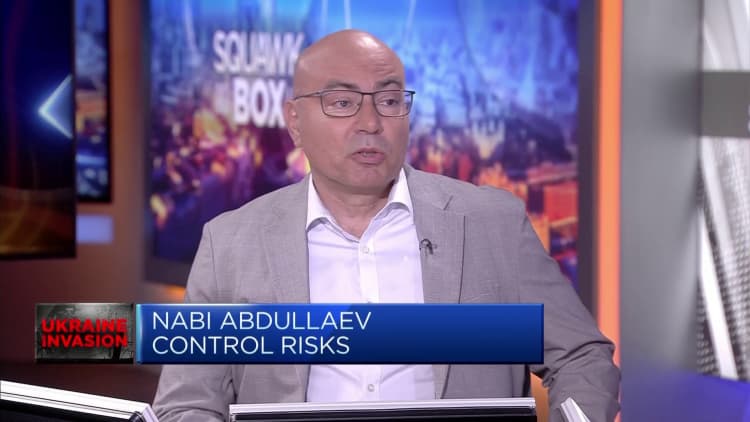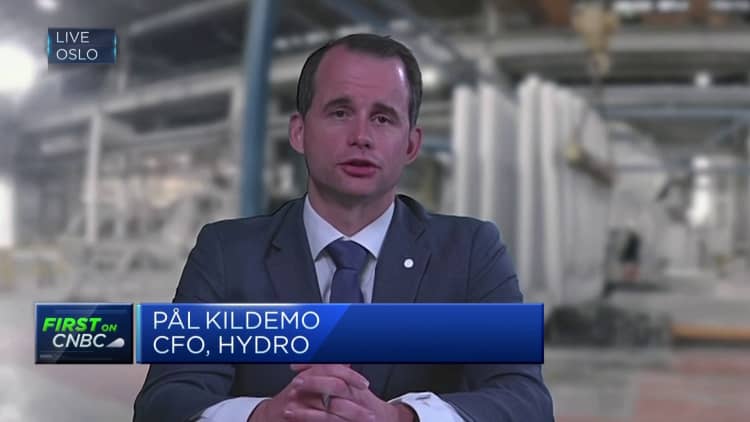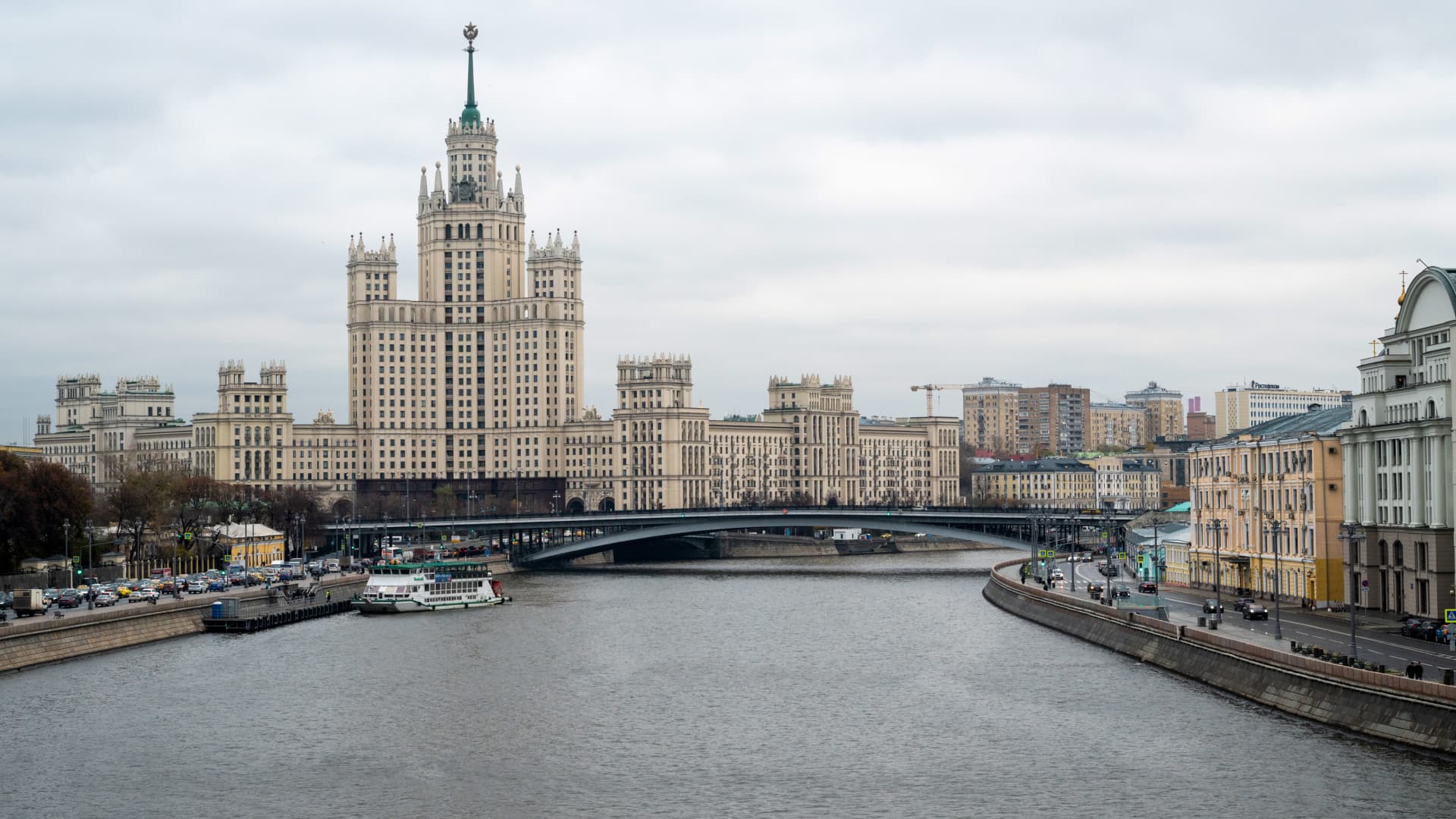The River Moskva in Moscow, Russia.
Bloomberg | Bloomberg | Getty Images
A wave of Western companies exited Russia promptly after Moscow’s invasion of Ukraine. But those who didn’t are now struggling to leave.
For firms wishing to quit, amid heavy reputational and financial damage, the prospect of leaving is becoming harder with time. Nabi Abdullaev, a partner at Control Risks and former editor of the Moscow Times, told CNBC: “Some companies decide to stay because the risk of leaving Russia, at this moment at least, is higher than the risk of staying.”
This is because the Russian government is constantly changing the rules for multi-national companies wishing to leave the country, making the process especially drawn out. Companies who go for a cut-and-run approach jeopardize their assets being taken by the state and “risk criminal prosecution of Russian staff,” Abdullaev said, speaking to CNBC last month.
In July, Carlsberg and Danone‘s Russian operations were seized by Russian President Vladimir Putin with the keys to both businesses handed to two of his closest allies. The companies were planning on selling their Russian assets before the takeover.

The Russian market is a dangerous one to remain in for Western companies, and as the window to leave shrinks, they risk getting caught in a geopolitical crossfire.
“The expropriation of Danone and Carlsberg was a significant move because it made the Russian government’s actions towards the remaining companies unpredictable. It sent a clear signal to the remaining companies that even non-strategic companies could be targeted,” Maria Shagina, a senior research fellow for economic sanctions, standards and strategy at the International Institute for Strategic Studies, told CNBC.
Among the businesses still operating in Russia are Unilever, Nestle, Philip Morris, UniCredit, Raiffeisen and PepsiCo. Research suggests that some 500 Western firms remain in the country.
Some of these companies have promised to find buyers, leave, or cut down on operations. While they remain, they must also pay taxes to the Russian government, which has led to heavy criticism. The Ukrainian government, for instance, has labeled Unilever, among others, an “international sponsor of war.“
For its part, Unilever has stated that it will not invest any further capital into Russia or profit from its presence in the country.
‘Uncomfortable’
Heineken’s struggle to leave demonstrates the difficulties faced by similar firms.
The beverage company had 1,800 staff in its Russian unit and was unable to execute a quick exit. In a recent statement in which it committed to leave the country, it said, “recent developments in Russia in summer 2023 [including the nationalization of major Western companies] demonstrate that it is even more challenging for businesses to secure exit approval.”
Heineken also stated that it was “uncomfortable” at the prospect of the Russian state benefitting from any potentially illegally appropriated business assets.
On Aug. 25, more than one year after announcing its plan to leave, Heineken found a buyer in the Russian Arnest Group which purchased the companies’ Russian operations for a euro. Heineken’s revenue from Russia in 2022 was $613 million, according to the Kyiv School of Economics.
Companies looking to exit Russia face strict restrictions put in place by the state and fear of expropriation in light of Carlsberg and Danone’s takeovers. Western companies that remain in the country are able to continue doing business because, despite sanctions, numerous transactions and activities are still authorized.
“As part of the ‘smart’ sanctions approach, the civilian and humanitarian sectors are not targeted, and many Western companies continue to operate in these sectors,” Shagina told CNBC.
In comparison, sanctions on Iran and North Korea are a far more severe environment for Western companies to operate within.

Some have been critical of the Russia approach. The chief financial officer of one of the biggest aluminum companies worldwide, Norsk Hyrdo’s Pål Kildemo, told CNBC that “our markets are struggling with a lot of Russian material still finding its way into the marketplace at discounted prices.”
Meanwhile in Russia, the corporate environment — and economy — is shifting, with the market share of non-Western companies increasing given the scale back by major Western businesses.
“The combined effect of international sanctions and the departure of hundreds of Western companies will likely have negative effects on Russia’s economic productivity,” said Andrius Tursa, an advisor for Central and Eastern Europe at risk advisory firm Teneo.
“Over time, this could further limit Russia’s economic growth potential and make country even more dependent on China.”

